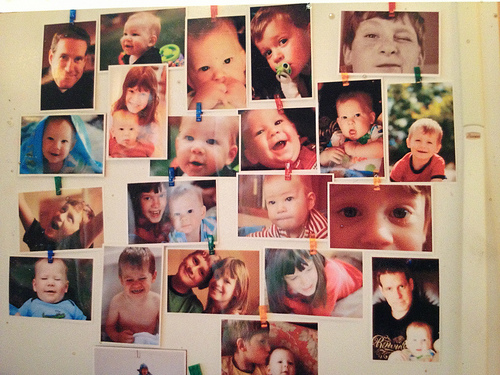How Can We Fit Kids Into Our Lives?
Ideals are great … until they meet the blender of real life. Having a vision for why and when to start a family can give you new momentum, but you’ll need all the extra motivation you can find once you start thinking through the logistics, the how. This is the place where the things that might be stirring in your heart meet the practical questions from your head: “How can we afford this?” “How will this affect our work?” “How are we going to manage all the care a baby will need?” “How do we prepare a home for a baby?”
“Parents have always had the primary responsibility for taking care of their children’s needs,” writes Barbara Dafoe Whitehead. ”What is new is that those needs are greater today. In a dynamic society and global economy, the task of nurturing, guiding and preparing children for flourishing adult lives requires higher investments of parental money, time and attention than ever before.”
 Coming up with all that money, time, and attention is more challenging in a day when couples typically need two incomes to cover their current budget (especially those carrying hefty student loan debt). Beyond the practical financial questions, the psychological questions add more anxiety. Couples who had poor modeling from their parents wonder how they’ll be able to avoid the same mistakes. Those who have seen the extra stress children bring to a marriage might wonder how their relationship can weather having a baby. Additionally, any couple that has gotten used to the nicer things afforded by two full-throttle careers, will likely have nagging worries about changes to their lifestyle and identity.
Coming up with all that money, time, and attention is more challenging in a day when couples typically need two incomes to cover their current budget (especially those carrying hefty student loan debt). Beyond the practical financial questions, the psychological questions add more anxiety. Couples who had poor modeling from their parents wonder how they’ll be able to avoid the same mistakes. Those who have seen the extra stress children bring to a marriage might wonder how their relationship can weather having a baby. Additionally, any couple that has gotten used to the nicer things afforded by two full-throttle careers, will likely have nagging worries about changes to their lifestyle and identity.
Then there are the random questions that pop up in the middle of dinner or in the middle of the night: “What about the family reunion that’s scheduled near the time we’d be having a baby? What about that trip to Europe we have planned—the baby would only be a couple of months old?” “Can you even put a car seat in the back of a Mini Cooper?”
In the face of all these logistical questions couples can lose their vision for starting a family—or at least end up wanting to hit snooze on the process.
When couples reach this place in their thoughts about starting a family, it’s tempting to hold off until they can come up with a better plan—until they can figure out what to do with all the questions that have surfaced. But maybe a better plan is overrated.
Just as it’s okay to start your family without having detailed answers to every question “Why,” it’s also okay to not know how everything’s going to work out, to not be able to see but so far down the road ahead.
Most children have been born into the world without a strategy—without a detailed budget or contingency plan. (You have to wonder what life would be like for kids whose parents would actually write a strategic plan before having them; Eustace Scrubb in The Voyage of the Dawn Treader comes to mind.)
By saying you don’t need a detailed plan, however, we’re not advocating that you just plow into all the logistical details of launching a family fueled by a blissful hope that everything will come together. We’re not saying you should back your way into parenthood. It’s a significant responsibility to bring life into the world and then care for, provide, protect, and guide that life.
What we are saying is you don’t need a detailed plan, but a few timeless principles can make all the difference. …